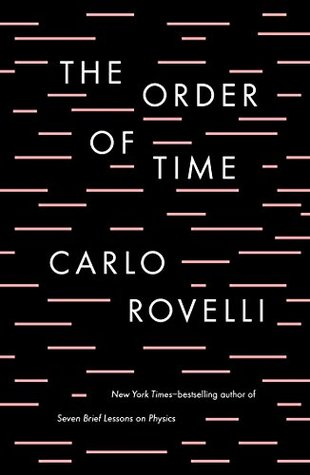More on this book
Community
Kindle Notes & Highlights
Let’s begin with a simple fact: time passes faster in the mountains than it does at sea level.
If things fall, it is due to this slowing down of time. Where time passes uniformly, in interplanetary space, things do not fall. They float, without falling.
Things fall downward because, down there, time is slowed by the Earth.
This is the only basic law of physics that distinguishes the past from the future.
We often say that causes precede effects and yet, in the elementary grammar of things, there is no distinction between “cause” and “effect.”* There are regularities, represented by what we call physical laws, that link events of different times, but they are symmetric between future and past.
Time passes more slowly for the one who keeps moving.
Our “present” does not extend throughout the universe. It is like a bubble around us.
The world is not a collection of things, it is a collection of events.
On closer inspection, in fact, even the things that are most “thinglike” are nothing more than long events.
What makes the world go round are not sources of energy but sources of low entropy. Without low entropy, energy would dilute into uniform heat and the world would go to sleep in a state of thermal equilibrium—there would no longer be any distinction between past and future, and nothing would happen.
We are processes, events, composite and limited in space and time.
If this is so, then “things,” like “concepts,” are fixed points in the neuronal dynamic, induced by recurring structures of the sensorial input and of the successive elaborations.
In other words, what we perceive is not the present, which in any case makes no sense for a system that functions on a scale of finite time, but rather something that happens and extends in time. It is in our brains that an extension in time becomes condensed into a perception of duration.


